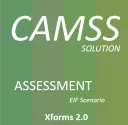The e-Government Core Vocabularies are simplified, re-usable and extensible data models that capture the fundamental characteristics of a data entity in a context-neutral fashion.
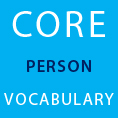
| The Core Person Vocabulary captures the fundamental characteristics of a person, e.g. the name, the gender, the date of birth, etc. |
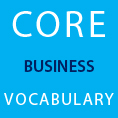
| The Core Business Vocabulary captures the fundamental characteristics of a legal entity, e.g. the legal name, the activity, address, legal identifier, company type, and its activities. |
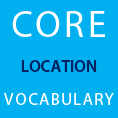
| The Core Location Vocabulary captures the fundamental characteristics of a location, represented as an address, a geographic name, or geometry. This vocabulary is aligned with the INSPIRE data specifications. |
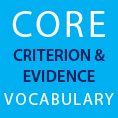
| The Core Evidence and Criterion Vocabulary describes the principles and the means that a private entity must fulfil in order to become eligible or to be qualified to perform public services. A Criterion is a rule or principle that is used to judge, evaluate or test something. An Evidence is the means by which a Criterion may be proven. |
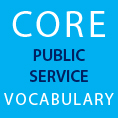
| The Core Public Service Vocabulary captures the fundamental characteristics of a service offered by public administration. Such characteristics include the title, description, inputs, outputs, providers, locations, etc. of the public service. |

| The Core Public Organisation Vocabulary describes public organisations with links to descriptions of public services, members of staff or other resources such as relevant legislation, policies and jurisdictional coverage in the European Union. |
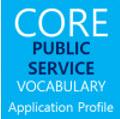
| The Core Public Service Vocabulary Application Profile captures fundamental characteristics of a public service, such as the name, description, competent public organisation, output, etc. |
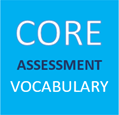
| The Core Assessment Vocabulary represents and defines what an “Assessment” of “assets” is and how to perform the assessment based on “Criteria”. It is a domain-agnostic vocabulary, meaning that it can be used to assess any type of assets. |
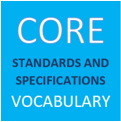
| The CSSV is the vocabulary used for the information exchange related to standards and specifications amongst software solutions, as well as, it is the key element for the development of the new release of the EIRA Library of Interoperability Specifications (ELIS). |

| The Core Public Event Vocabulary is a simplified, reusable and extensible data model that captures the fundamental characteristics of a public event, e.g. the title, the date, the location, the organiser etc. |
1. What are the benefits of using the e-Government Core Vocabularies?
One of the main benefits of the e-Government Core Vocabularies is that they provide a concrete starting point for promoting semantic interoperability among European public administrations.Public administrations can use and extend them in the following contexts:
- Information exchange between systems: the e-Government Core Vocabularies can become the basis of a context-specific data model used to exchange data among existing information systems.
- Data integration: the e-Government Core Vocabularies can integrate data that comes from disparate data sources.
- Data publishing: the e-Government Core Vocabularies can be the foundation of a common export format for data in base registries like cadastres, business registers and service portals.
- Development of new systems: the e-Government Core Vocabularies can be the default starting point for designing the conceptual and logical data models in newly developed information systems.
2. Who developed the solution?
ISA² has developed the e-Government Core Vocabularies for public administrations in an open process with the active involvement of the SEMIC action stakeholders including:
- The e-Government Core Vocabularies Working Group;
- the Directorate-General for Informatics: DG DIGIT - in particular the SEMIC action of the ISA² programme; and
- the Publications Office of the EU.
3. How are the e-Government Core Vocabularies maintained?
The e-Government Core Vocabularies are maintained based on the Process and Methodology for Developing Core Vocabularies.
All changes in the specification are discussed with the e-Government Core Vocabularies Working Group to make sure that changes do not negatively impact the operation of implementations and the interoperability across the network and are publicly communicated.
4. e-Government Core Vocabularies key milestones
- In April 2021 a new public review cycle of the Core Person Vocabulary, Core Business Vocabulary, Core Location Vocabulary and Core Public Organisation Vocabulary started. After a series of five webinars, version 2.0.0 of the Core Vocabularies was released.
- From February 2016 until December 2016 the Core Criterion and Core Evidence Vocabulary was developed by the Working Group
- From December 2012 until March 2013 the Core Public Service vocabulary was created by a multi-disciplinary Working Group.
- On 23 May 2012 the Coordination Group of the Interoperability Solutions for European Public Administrations (ISA) Programme has endorsed the Core Business, Core Location and Core Person Vocabulary.
- On 17 February 2012 a final draft of the e-Government Core Vocabularies entered a month-long public review period.
- From November 2011 until May 2012 the Core Business, Core Person, and Core Location Vocabularies were created by a multi-disciplinary Working Group with 69 experts from 22 countries, 18 EU and 4 non-EU countries, following an open and inclusive process of consensus building.
5. e-Government Core Vocabularies at one glance
6. Get started
Download the Core Vocabularies latest and previous releases.
Discover the Handbook on Core Vocabularies.
Get acquainted with the Process and Methodology for Developing Core Vocabularies.
7. Get involved!
Do you want to participate in the work of our Core Vocabularies Working Group? Share your comments and change requests via:
- GitHub Core Person Vocabulary repository
- GitHub Core Business Vocabulary repository
- GitHub Core Location Vocabulary repository
- GitHub Core Public Organisation Vocabulary repository
- GitHub Core Criterion and Core Evidence Vocabulary repository
8. e-Government Core Vocabularies users
Core Vocabularies have been successfully implemented by:
- The European Commission - DG DIGIT and DJ JUST - uses Core Business Vocabulary in the EU Business Registers Interconnection System (BRIS) (last update in May 2015).
- The Estonian Inforegister.ee in its Register App Engine Graph project.
- The Estonian Ministry of Economic Affairs and Communication, in the integrated portfolio management of public services (last update in March 2014).
- The Spanish Point of Single Contact for business.
- The Italian Digital Agency (AGID) with SPCData.
- The Italian Digital Agency (AGID) with CPSV-AP_IT.
9. Any questions?
Contact the SEMIC team.
10. About SEMIC
Visit the SEMIC collection on Joinup.




